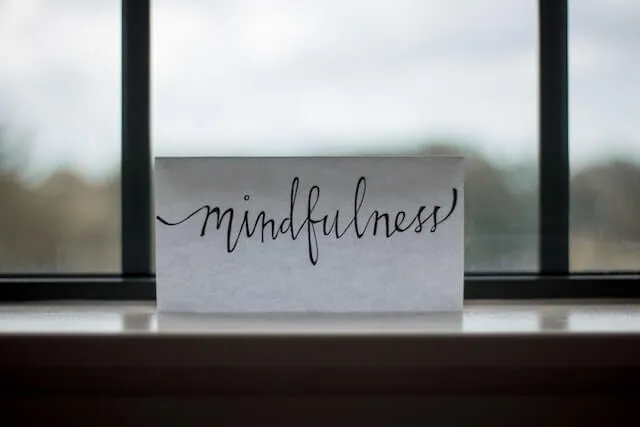What is stress?
Individuals cannot expect life to go according to plan, as they inevitably encounter problems or issues as they age, given that our world is not a utopia where everything is perfect.
Stress is a natural human response to challenging situations. It induces worry or mental tension, prompting individuals to confront and address life's challenges and threats to varying extents (World Health Organization, 2023). However, too many stressful situations can heighten stress levels, which leads to many negative effects, such as mental and physical health problems. Stress hormones, like adrenaline and cortisol, kick in when an individual face challenges, preparing their bodies for action.
As one faces new milestones in life, stress occurs, and problems may also escalate to a point where they become tough to handle, highlighting the importance of effective stress management and coping strategies to prevent the onset of mental health issues or chronic stress.
What is distress?
Distress is the negative stress response from being overwhelmed by demands, losses, or perceived threats. It leads to physical and psychological maladaptation and serious health risks. Distress encompasses a negative emotional state where the specific emotion is unidentifiable, such as stranger anxiety in infants, which is better-termed stranger distress due to general negative behavior like crying (American Psychological Association, 2018a).
Recognizing signs of distress can prompt timely support and intervention for those experiencing distress.
Physical symptoms of distress
Distress can manifest in an individual's body and can pave the way to chronic health issues. Here are some of the physical symptoms of distress (American Institute for Preventive Medicine, n.d.; American Psychological Association, 2023):
- Tension headaches
- Gritting or grinding of teeth
- Digestive problems
- Trembling of lips or hands
- Muscle tenseness, bracing, neck, and back aches
- Increased sensitivity to light and sound
- Lightheadedness, faintness, or dizziness
- Ringing in ears
- Heartburn, stomach cramping, or nausea
- Uneven or rapid heartbeat without exercising
- Difficulty breathing
- Increased perspiration
A healthcare provider may require individuals to practice relaxation techniques, such as progressive muscle relaxation, to overcome distress.
Mental symptoms of distress
There are days when an individual's mind won't settle because they feel overwhelmed by everything. Mental symptoms of distress can creep in, affecting thoughts, emotions, and overall well-being in ways that make daily life feel much more complicated.
Here are some mental symptoms of distress (Adelphi University New York, n.d.; American Institute for Preventive Medicine, n.d.):
- Significant changes in eating, sleeping, grooming, mood, socializing, personality, concentration, or activities
- Difficulty carrying on a normal conversation
- Explicit talk about hopelessness, death, or suicide
- Feeling out of control of behaviors and emotions
- Racing thoughts
- Anxiety, worry, guilt, nervousness
- Increased anger, frustration, moodiness
- Depression
- Changes in appetite
When an individual experiences distress symptoms, seek professional help to identify and improve coping abilities and make all the difference in one's mental and emotional well-being.
Common causes of distress
We've all experienced those moments when life throws a curveball, leaving us with overwhelming stress. Here are some common causes of distress:
- Financial difficulties
- Relationship conflicts
- Work-related stress
- Health concerns
- Significant life changes like moving or starting a new job
- Academic pressures
- Social isolation
- Traumatic events such as loss or accidents
It can be not easy to experience these challenges but acknowledging them can encourage one to seek support and implement coping strategies for a healthier, more balanced life.
What is eustress?
Eustress is the beneficial or positive stress response to stimulating challenges, fostering fulfillment, growth, and high performance through enjoyable and attainable tasks like sports or public speaking (American Psychological Association, 2018b). Recognizing that not all stress is harmful underscores the importance of distinguishing between different types of stress responses.
Why is this considered to be a good kind of stress?
Eustress is seen positively because it arises from engaging challenges that excite rather than overwhelm individuals. It's like the thrill felt before a fun physical activity or tackling a manageable yet stimulating task.
Unlike distress, which can cause anxiety and harm, eustress fuels motivation, enthusiasm, and a sense of purpose. It's similar to the rush of excitement before a big event or a thrilling adventure. Eustress helps people grow personally, become more resilient, and achieve more. It's like a spark that boosts performance, encourages creativity, and brings deep satisfaction.
Physical benefits of eustress
Experiencing positive stress, or eustress, can be incredibly beneficial for our physical well-being, providing a boost beyond just feeling good (Burke, 2023). Here are some of these physical advantages:
Increased energy levels
Challenging but enjoyable activities can boost adrenaline and endorphin levels, which results in higher energy and stamina. Eustress can give individuals the motivation and energy to tackle tasks that they may have previously deemed too daunting.
Better physical fitness
Eustress often encourages regular physical activity, which improves overall fitness, muscle tone, and endurance. It can also improve cardiovascular health and reduce the risk of chronic diseases such as obesity, diabetes, and heart disease.
Stronger muscles
Engaging in challenging physical activities under eustress can lead to muscle growth and increased strength. Eustress can also help improve coordination, balance, and flexibility.
Understanding eustress can be the starting point for an active and healthy lifestyle.
Mental benefits of eustress
The benefits of eustress aren't only limited to physical. Here are four mental benefits (Simmons & Nelson, 2001; Heckman, 2019):
Increased motivation and resilience
Eustress boosts motivation and performance by providing positive challenges. Moreover, it gives a hopeful outlook and builds resilience for future stressors.
Improved focus
Eustress can enhance concentration and focus. It enables individuals to stay engaged and attentive to the tasks at hand, which can result in a positive effect.
Greater sense of accomplishment
Successfully navigating eustress-inducing situations fosters a sense of achievement and boosts self-esteem. When this happens, it adds meaningfulness to one's efforts.
Positive emotional state
Eustress often leads to positive emotions like excitement and satisfaction, contributing to overall mental well-being.
Main takeaways
Here are some essential points for you to remember about stress, eustress, and distress:
- Stress is a normal physiological response to challenging situations, and understanding the difference between eustress and distress is essential for effective stress management.
- Eustress is positive stress from stimulating challenges that promote growth, achievement, and fulfillment.
- Distress, on the other hand, is negative stress that overwhelms and debilitates individuals, leading to harmful physical and mental effects.
- Recognizing the signs of distress early on can help individuals seek appropriate support and implement coping strategies to mitigate its negative effects.

References
Adelphi University New York. (n.d.). Common causes, signs and symptoms of distress. https://www.adelphi.edu/scc/counseling-services/parents-families-and-friends/signs/
American Institute for Preventive Medicine. (n.d.). Common symptoms of distress. https://healthylife.com/online/fullversion/stress/phone/common-symptoms-of-distress.html
American Psychological Association. (2018a, April 19). APA dictionary of psychology - distress. https://dictionary.apa.org/distress
American Psychological Association. (2018b, April 19). APA dictionary of psychology - eustress. https://dictionary.apa.org/eustress
American Psychological Association. (2023, March 8). Stress effects on the body. https://www.apa.org/topics/stress/body
Burke, A. (2023, November 21). What is eustress? Study.com. https://study.com/academy/lesson/what-is-eustress-definition-examples-quiz.html
Heckman, W. (2019, October 21). The good stress: How eustress helps you grow. The American Institute of Stress. https://www.stress.org/the-good-stress-how-eustress-helps-you-grow
Simmons, B. L., & Nelson, D. L. (2001). Eustress at work: The relationship between hope and health in hospital nurses. Health Care Management Review, 26(4), 7–18. https://www.jstor.org/stable/44951036
World Health Organization. (2023, February 21). Stress. https://www.who.int/news-room/questions-and-answers/item/stress











.jpg)





.jpg)
.jpg)

.jpg)
%20Communication%20Disorder%20vs%20Autism%20min.jpg)
.webp)
.webp)
.webp)
.jpg)
.webp)
.webp)

.webp)









